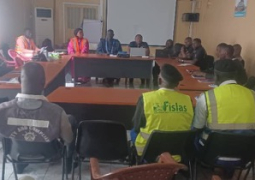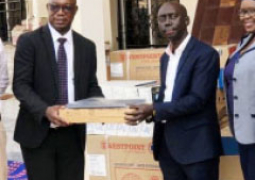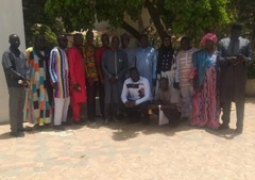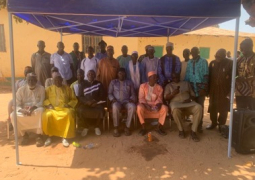
The validation was aimed at substantiating the draft groundnut regulation in the country. It would be recalled that the Food and Agriculture Organization of the United Nations and the World Health Organization in 2014 launched the Codex Trust Fund to support developing countries' meaningful participation in the Codex activities.
Through the Food Safety and Quality Authority, The Gambia was awarded the Codex Trust Fund to, among other things, develop regulations for food commodities of national interest. As such, the Authority initiated the development process of a groundnut regulation using a multi-stakeholder approach.
In line with consultative and procedural process, the draft regulation has undergone all necessary reviews and amendments duly informed by contributions and comments from various national and international stakeholders.
At the validation, Mamudou Bah, Director General of the FSQA, said that groundnut is one of the most important cash crops in the country, saying it has been one of the main sources of foreign exchange in the county.
“If you look at the consumption in the country, groundnut happens to be the largest commodity in the country because it is prepared in so many different recipes and dishes in The Gambia. We have waited proudly Gambian dish 'domoda' which we enjoy most of the time and If we look at most of our recipes we find groundnut in it.” he added. .
The Scientific Department at the Authority, he added, has embarked on a consumption data and groundnut happens to be also one of the high risk commodities when it comes to food due to the micro-toxin content found during value change of groundnut and that could be risky in one's health.
“We believe that regulating groundnut and promoting high level of concern regulation will not only increase the safety regulation of commodity of the country for consumption, but would also increase the market value of groundnut so that it will increase the new market for consumption.” Bah said.
Bah, thus, thanked their partners FAO for supporting them through the journey by providing financial backing and other partners for the technical inputs and guidance throughout the process.
Dr Mustapha Ceesay, Deputy Country representative of Food & Agriculture Organization in The Gambia, recalled that FAO has since 2010 been working with FSQA to find ways and means to enhance the groundnut value chain
The collaboration, he added, was facilitated by a project that was between FAO and the AU, saying FSQA was identified by the government to spearhead the important document to enhance groundnut value.
“If you talk about The Gambia without mentioning groundnut then you don't know Gambia. Historically the Gambia is highly linked to the groundnut value change in the past and we have been experiencing problem with regards to aflatoxin groundnut from the Gambia. A number of countries and the Gambia were not passing the EU regulation so this means that the Gambia and other African countries could not export groundnut into the EU markets.” he added.





